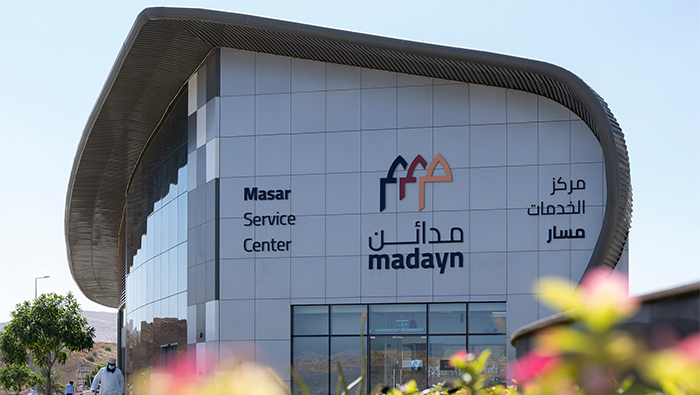
Muscat: The Public Establishment for Industrial Estates (Madayn) has been awarded Level 2 certification, “Qualified as an Organisation using the EFQM Model” by the European Foundation for Quality Management in recognition of its adherence to EFQM Model standards.
This achievement reflects its commitment to implementing the ‘Madayn Institutional Excellence Programme’ and maintaining service quality and maturity levels at the head office and Masar Service Centres throughout its industrial cities.
Launched in June 2021, the ‘Madayn Institutional Excellence Programme’ involves a comprehensive restructuring of the strategy and support sector, and a thorough study of Madayn’s ecosystem, including stakeholders, employees, investors, clients, government and private bodies, competitors, and the overall international investment climate.
Eng. Abdullah Al Kabi, Acting Head of Strategy and Institutional Support Sector, and Head of the Executive Committee for the Institutional Excellence Programme, commented that Madayn has achieved a significant milestone by becoming the first among all government and private bodies in the Sultanate to reach Level 2 of the EFQM model, highlighting its commitment to quality and excellence.
“Attaining this level signifies Madayn’s success in aligning its strategies, plans, and programmes for institutional transformation with the international standards set by the EFQM – a framework encompassing leadership, guidance, execution, monitoring and impact measurement tools applied in approximately 50,000 companies and organisations worldwide,” Al Kabi said, adding: “The adoption of the EFQM Model by Madayn followed an extensive study of globally key excellence and quality models. In fact, the EFQM Model was chosen for its comprehensiveness, depth, and ease of implementation, aligning with Madayn’s objectives to enhance its regional and international competitiveness, attract and retain clients, and ultimately increase profitability through institutional excellence.”
Houda Al Battashi, Director of Excellence and Institutional Transformation Department at Madayn, emphasised the major role played by internal teams in executing the Institutional Excellence Programme. “These teams conducted in-depth analysis and restructuring of the strategy sector, internal and external process and service engineering, utilising methodologies including Kaizen approach, Project Management Office, internal assessment, ADKAR Model, EFQM Radar methodology, among others, which have all contributed to the realisation of this milestone,” Al Battashi underscored.
Al Battashi also emphasised that applying the EFQM Model represented a significant challenge for Madayn’s employees, as it introduced a new framework to the work environment, necessitating the adoption of entirely new approaches, initiatives, and monitoring and measurement tools. “The level of achievement reached by Madayn instills optimism and confidence in the future. This achievement has become a reality through the management’s major support in the Institutional Excellence Programme,” she added.
On his part, Mohammed Al Ajmi, Head of Project and Improvement Management Department and Head of the Excellence Team at Madayn, underscored that institutional excellence has become a fundamental principle in organisational practices, aimed at achieving outstanding performance and outperforming competitors by implementing innovative and effective practices across all operational areas. “To achieve this, Madayn has adopted an approach revolving around strategic leadership, customer focus, results-oriented management, continuous innovation and improvement, and partnerships and talents. By implementing these strategies and processes, Madayn seeks to enhance customer satisfaction and improve overall organisational performance,” Al Ajmi remarked.
According to Al Ajmi, the challenges arising from the implementation of the EFQM are gradually transforming into valuable lessons over time.“These include resistance to change, which is being addressed through constant awareness, additional training sessions and workshops, enhanced motivation and support for programme teams, and improved communication among members and within the overall work environment,” Al Ajmi added.